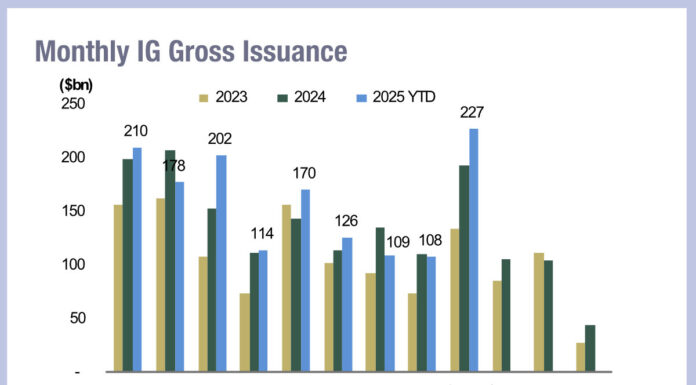A number of buy-side firms have challenged Securities and Exchange Commission (SEC) proposals that would require open-ended mutual funds, excluding money market funds and exchange-traded funds, to use swing pricing to adjust a fund’s net asset value (NAV) per share in order to pass on costs stemming from shareholder purchase or redemption activity to shareholders.
The proposed amendments to Rules 22e-4 and 22c-1, under the Investment Company Act of 1940, define swing pricing as the process of adjusting a fund’s current NAV per share to mitigate dilution of the value of its outstanding redeemable securities, as a result of shareholder purchase and redemption activity.
The proposal would mandate a “hard close” for mutual funds (other than money market funds). A hard close would see a purchase or redemption order be eligible for a given day’s price (as adjusted by the applicable swing factor) only if the mutual fund, its transfer agent or the National Securities Clearing Corporation (NSCC) receives an “eligible order” before the fund’s NAV pricing time (generally, 4 pm ET).
In classifying an investment under the liquidity rule, the proposal would require an open-end fund to “measure the number of days in which the investment is reasonably expected to be convertible to US dollars without significantly changing the market value of the investment, while assuming the sale of 10% of the fund’s net assets by reducing each investment by 10%”, the SEC said.
“This one-size-fits-all approach ignores the fact that funds vary significantly in size, asset types, and investor types, all of which are attributes that need to be considered when determining a fund’s risk of dilution,” wrote asset manager Franklin Templeton in a response to the proposal.
The rule change would also provide for more frequent and detailed reporting of fund information including information about the fund’s liquidity and use of swing pricing.
A number of firms took the opportunity to push back against the mooted changes, emphasising the potential harm they would do given the fact that, for many, the current framework was more than adequate.
JP Morgan Asset Management
JP Morgan Asset Management CEO George Gatch made three recommendations to the SEC, suggesting the regulator should retain the existing definition of reasonably anticipated trade size (RATS) across funds.

“To the extent the Commission is concerned about a lack of specific parameters, it may choose to provide further guidance on how funds consider stress in determining a ‘reasonably anticipated’ trade size,” Gatch said.
Gatch also recommended the SEC should maintain the “primarily” exclusion to the highly liquid investment minimum (HLIM) requirement and provide further guidance on how funds in scope for this requirement should set an HLIM.
The proposed rule would remove the primarily exclusion and require all funds to establish HLIM shortfall procedures. The proposal would also require all funds to adopt an HLIM of at least 10% of the fund’s net assets.
The proposed rule is intended to address the concern that funds currently relying on the primarily exclusion “do not have the benefit of shortfall procedures, including board oversight, to respond to events or market conditions that may cause the fund to fall under its previously determined level of primarily held highly liquid investments.” The proposed 10% HLIM minimum is intended to improve the ability of funds to meet shareholder redemptions in stressed scenarios and minimize any competitive advantage for similar funds.
Morgan Stanley Investment Management
Morgan Stanley Investment Management said that while it agreed with the SEC that managing liquidity risk in open-ended funds and protecting investors is important, it has “significant concerns” with the proposals.
“Not only would the proposal dramatically alter the rules for liquidity risk management when experience has demonstrated current rules and practices to be effective, but its mandatory hard close and swing pricing requirements for mutual funds would cause, in our view, more harm than the shareholder dilution and fund resiliency considerations the proposal seeks to address,” the firm’s chief operating officer John Hagarty said.
Hagarty said that the proposed changes would have consequences, “both contemplated and unintended”, that would be harmful to fund investors, and that the changes would be severely disruptive and impose costs on funds and shareholders.
Hagarty also stated that the proposed amendments to Rule 22e-4 under the Investment Company Act would harm fund shareholders by lowering their returns and reducing the investment options available to them.
“The elimination of the ‘less liquid’ category, in particular, would effectively prevent investors from accessing certain strategies through open-ended funds, harming both investors and capital formation,” the letter said.
Hagarty strongly opposed the proposed requirement for mutual funds to adopt a hard close and to limit eligible purchase and redemption orders such that many fund shareholders could no longer rebalance their holdings across multiple funds in transactions executed on the same day.
“As an alternative to swing pricing, we believe daily variable liquidity fees with the right features could address the fundamental flaws of swing pricing,” Hagarty added.
The firm also pushed back against the proposed amendment to increase the required frequency of portfolio holdings reporting on Part F of Form N-PORT, the proposed amendment requiring public availability of Form N-PORT filings each month, rather than only the third month of each quarter, and the proposed requirement to report publicly every month aggregate liquidity classifications.
“If the SEC proceeds in the face of the strong opposition and serious concerns that we and other commenters have expressed, a longer implementation period than proposed is critical,” Hagarty noted.
Charles Schwab Investment Management
Charles Schwab Investment Management (CSIM) said that as the 2016 reforms are working effectively, it questioned whether the new rule proposal is necessary at all.

”Indeed, the liquidity risk management reforms in the current proposal, while cloaked in a desire to protect shareholders, are so prescriptive and place so many restrictions on the management of funds that they are likely to make mutual funds an unattractive investment option,” CSIM president Rick Wurster said.
“Together with the proposal’s unworkable requirements for swing pricing and a ‘hard 4 p.m. close’, these changes would undermine decades of growth that have made open-ended funds a key element of the portfolios of tens of millions of individual investors. It is retail investors who stand to lose the most from this misguided proposal,” Wurster added.
Wurster also suggested the proposal would “dramatically decrease” the appeal of mutual funds for individual investors, particularly for retirement savers. The result is likely to be a significant decline in mutual fund usage by individual investors, reducing choice, increasing complexity and ultimately driving investors to other investment options. “We believe it is not hyperbole to say that this proposal will completely reshape the fund landscape, harming tens of millions of investors.”
The firm also said that current liquidity management practices are sufficient to manage redemptions in volatile markets and that swing pricing, in addition to presenting overwhelming operational challenges, would result in a significant decrease in transparency for investors, who would not know whether a swing factor was being applied to their transaction until well after they made the transaction request.
The proposal would result in a clear advantage for investors who bypass intermediaries and invest directly with the fund, many of which are likely to be institutional investors and fails to recognise that funds can have significantly different levels of liquidity risk based on their investment strategies and goals.
Franklin Templeton
In order to implement swing pricing, the proposal would require the establishment of a “hard close,” Franklin Templeton’s deputy general counsel Alison Baur wrote, which could negatively impact retail investors. This is because most retail investors purchase and sell fund shares through intermediaries, Baur said.
“We believe that if swing pricing, and the requirement for a hard close is adopted, retirement plan providers in particular might decide to remove mutual funds from their platforms entirely, due to the significant changes that the providers would need to make to their operational infrastructure.”
Fidelity Investments
Fidelity’s chief legal officer Cynthia Lo Bessette said the firm opposed the SEC’s proposal to replace the current principles-based regime with a highly prescriptive, one-size-fits all approach. “Such an approach will have negative consequences for funds and will misrepresent funds’ liquidity profiles, by limiting investor choice and potentially undercutting fund performance.”

Fidelity also pushed back against the use of swing pricing and believed the rule proposal, if adopted, will negatively impact the mutual fund market and hinder capital formation. “This will, in turn, have detrimental effects on the more than 100 million Americans who have put their hard-earned money into mutual funds in order to achieve their financial goals, such as enjoying a dignified retirement, saving for a family member’s college education, or buying a home,” Lo Bessette said.
Fidelity also alleged that the SEC has failed to meet its cost-benefit analysis obligations for imposing swing pricing and the hard close on the mutual fund industry. “The SEC offers no rigorous, data driven analysis of the harms that the proposal is seeking to address. In addition, the SEC’s assertions that the proposal is necessary to increase operational resilience are spurious at best and its claims that the hard close will prevent late trading are not grounded in fact.”
Lo Bessette said Fidelity strongly objects to the SEC’s proposal to institute a hard close as it will upend decades of standard mutual fund operations, especially the operations of broker-dealers and of retirement plan recordkeepers, in a manner that would significantly harm investors and retirement savers, decrease the attractiveness of mutual funds as an investment vehicle and drive many investors to other, less regulated products.
© Markets Media Europe 2023
©Markets Media Europe 2025













